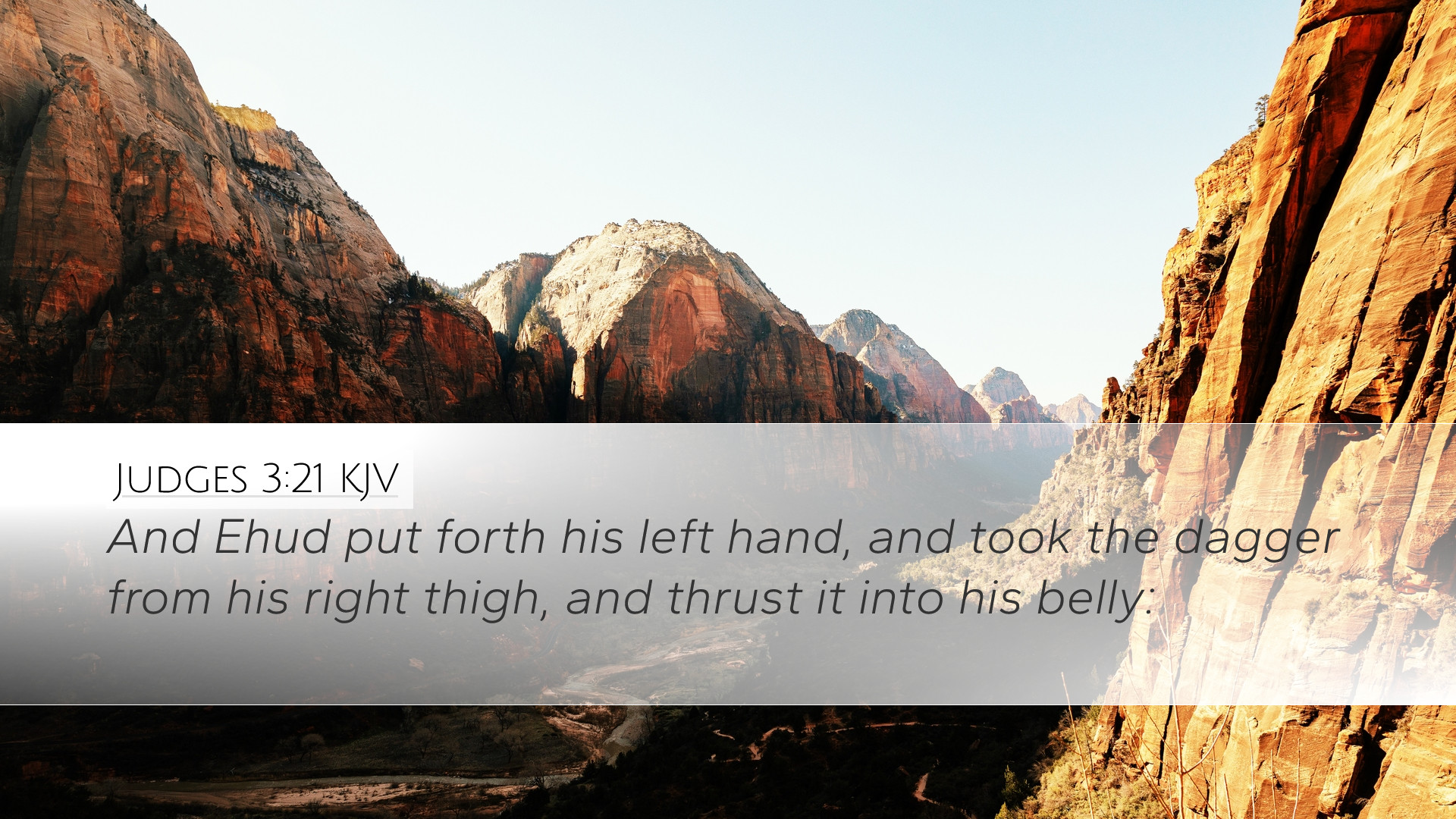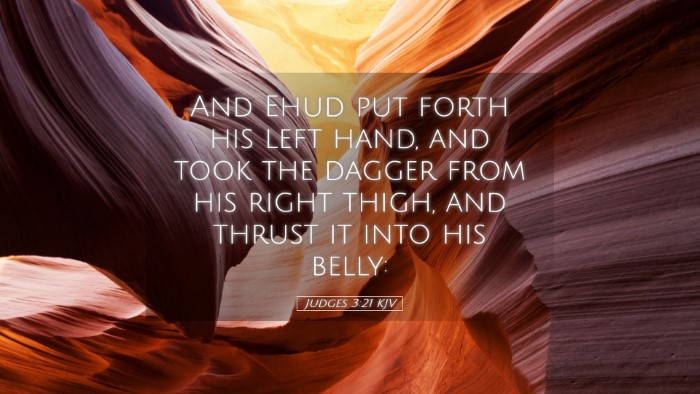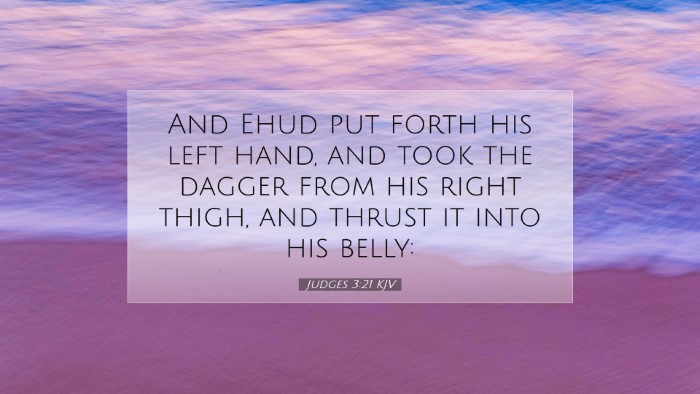Judges 3:21 Commentary
Bible Verse: Judges 3:21 - "And Ehud put forth his left hand, and took the sword from his right thigh, and thrust it into his belly."
Introduction
The narrative of Ehud is a striking account that reflects the complexities of Israel's Judges period, where God raised up leaders to deliver His people. In Judges 3:21, the text captures a key moment of intrigue and divine deliverance, illustrating both the shrewdness of Ehud and the sovereignty of God in using unconventional means for His purposes.
Contextual Background
This episode occurs during a time of oppression by Eglon, the king of Moab, who had subjugated Israel. The backdrop reveals a nation that had turned away from God, resulting in their enslavement. God’s method of raising up Ehud, a left-handed man, is significant as it challenges the norms — left-handedness was often viewed with suspicion, contributing to the theme of God using the unlikely to fulfill His plans.
Verse Analysis
Literal Interpretation
Ehud’s act of using his left hand to draw a sword hidden on his right thigh is not merely a physical maneuver but symbolically represents the subversion of expectations. Albert Barnes notes that left-handedness was uncommon among warriors of that time, hence facilitating surprise during his assassination of Eglon.
Symbolism of the Action
Matthew Henry draws attention to the significance of the sword — a weapon not solely of physical warfare but also of spiritual implications. The sword represents judgment and divine justice, illustrating that God often raises up instruments of judgment against those who oppress His people.
Theological Implications
Divine Sovereignty
This passage highlights God's sovereignty in the history of His people. God raises Ehud as a deliverer despite cultural norms or physical limitations. Adam Clarke emphasizes that God's method is often not through might or popular choice, but through the humble and obscure.
Using the Weak
Ehud's left-handedness can be viewed as a representation of how God often chooses the weak and foolish things of the world to confound the wise (1 Corinthians 1:27). This choice underscores a profound truth about reliance upon God's strength rather than human prowess.
Practical Applications
- Embracing Unconventional Tools: Much like Ehud, believers are called to embrace their unique gifts and abilities, even if they go against societal norms. God can and does use what the world deems weak or ineffective.
- Faith Over Fear: Ehud’s courage in confronting Eglon serves as a lesson in the necessity of faith when facing formidable challenges. Believers should remember that God equips them for their appointed missions, regardless of the odds stacked against them.
- Justice and Deliverance: This passage reminds us of God's commitment to deliverance and justice. It reassures the faithful that God sees their oppression and will act at the appointed time.
Conclusion
Judges 3:21 presents a vivid illustration of God’s deliverance through unexpected means, emphasizing His control over human affairs. This commentary draws on insights from respected theologians like Matthew Henry, Albert Barnes, and Adam Clarke, presenting a multi-faceted understanding of the text that enriches our comprehension of God's work in history. As we reflect upon this passage, may we be encouraged to trust in God's sovereign purpose and remain attentive to the ways He might use us in His service.


